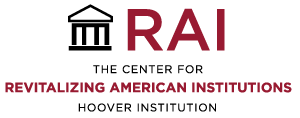 |
Ancient and Medieval Political Theory
University of Virginia
Instructor: Rita Koganzon
Term: Fall 2020
This seminar explores the philosophical foundations and evolution of the American political system, examining key themes such as founding principles, religion, race, constitutionalism, and America’s global role through close discussion of primary texts and expert lectures.
|
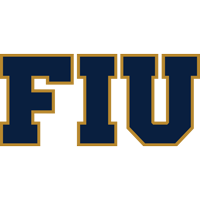 |
Ancient and Medieval Political Theory
Florida International University
Instructor: Alicia Steinmetz
This writing-intensive course traces the evolution of political thought from ancient Greece through Roman and medieval Christian traditions, teaching students to analyze ideas in historical context while connecting them to enduring questions in contemporary political theory.
|

|
Challenge of Citizenship
University of Montana
Instructor: Scott Arcenas
This course explores the meaning and practice of citizenship amid deep social divisions, using the Third Way Civics approach to help students engage constructively with enduring disagreements about self-government, history, and civic identity. Through collaborative inquiry, discussion, and reflection, students develop the knowledge, skills, and dispositions needed to act as thoughtful, empathetic, and effective citizens in diverse communities.
|
 |
Citizenship in the 21st Century
Stanford University
Term: Winter 2023
This course examines the evolving meaning and practice of democratic citizenship in the modern world, equipping students with the historical insight and practical skills—such as open debate and collaborative problem-solving—needed to address contemporary challenges like authoritarianism, globalization, and social media’s impact on democracy.
|
 |
Civicus: Advancing Civic Education
Southern Oregon University
Instructor: Prakash Cenjeri
This course explores the evolution and practice of citizenship as an active, participatory commitment to the common good. Through the study of democracy’s philosophical roots, historical development, and contemporary challenges, the course equips students to think critically about the responsibilities of citizens and the conditions that sustain democratic life.
|
 |
Civics and Public Policy
University of Denver
Instructor: Naazneed Barma
Term: Fall 2024
This course integrates the study of public policy and civics to examine how interactions between government and society shape collective action, civic participation, and social transformation. Through diverse readings and critical analysis, students develop a comprehensive understanding of state-society relations and gain the tools to become informed, reflective, and active participants in civic life.
|
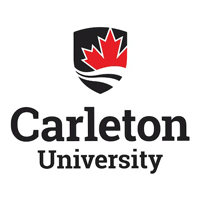 |
Concepts of Political Community I
Carleton University
Instructor: Waller Newell
Term: Winter 2025
This course explores classical and modern debates about the best political community and way of life through close study of Plato, Aristotle, and Hobbes, examining questions of virtue, self-interest, justice, and the common good. Designed especially for students of political theory, history, and philosophy, it develops a foundational understanding of major political ideas through weekly discussions, presentations, and engagement with key texts.
|

|
The Constitution out of the Sources of the American Revolution
University of Notre Dame
Instructor: Daniel Slate
This course examines the historical origins and meanings of the U.S. Constitution, exploring how eighteenth-century Americans understood concepts like freedom and rights and why they fought a revolution to secure them. Through close reading and student-led discussions, it seeks to uncover the Constitution’s intellectual roots and enduring legacy for modern democracy.
|
 |
Dangerous Ideas
Chapman University
Instructor: Erik Kimborugh
This course examines the history and moral complexity of dissent–from Socrates to modern figures–by confronting controversial, timely, and sometimes unsettling ideas as they emerge rather than judging them only in hindsight.
|
 |
Deadly Bands: Introduction to the Political Problem of Violent Male Groups
Stanford University
Instructor: Lucian Staiano-Daniels
This course examines the roles of “violence specialists”–men who participate in both state-sanctioned and criminal violence–analyzing their interactions with states and societies across time to understand the political dynamics and challenges of embedded violence.
|
 |
Democracy and Democratization in China
Fordham University
Instructor: Dongxian Jiang
Term: Spring 2025
This course explores political reform and the evolving concept of democracy in post-Mao China, examining how Chinese leaders and intellectuals define and pursue democratic or meritocratic governance and assessing the prospects and implications of China’s political development.
|
 |
Democracy: Ancient to Modern
University of Montana
Instructor: Scott Arcenas
This course explores the origins and defining features of ancient Greek democracy, including its emphasis on equality and citizen participation, and its reliance on the exclusion of women, slaves, and foreigners. Students will also examine how Greek democratic practices influenced modern political thought and consider the challenges and questions they raise for contemporary democratic societies.
|
 |
Democracy: Ancient and Modern
University of North Carolina at Chapel Hill
Instructor: Jed Atkins
Term: Fall 2025
This course compares ancient Athenian and modern American democracy to explore whether modern systems fulfill or depart from the ideals of the first democracy. Through themes such as freedom, equality, citizenship, and civic virtue, students consider what ancient democratic thought can teach us about democratic life today.
|
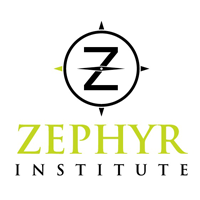
|
Ethics and Happiness
Zephyr Institute Philosophy Camp
Instructor: Molly Oshatz
This weeklong philosophy camp explores major ethical theories and their implications for human flourishing, covering topics such as moral relativism, virtue ethics, consequentialism, deontology, and animal ethics. Through classic and contemporary readings, guest discussions, and interactive activities, students examine how different approaches to ethics shape our understanding of happiness, responsibility, and the good life.
|
 |
Foundations of Political Theory
Harvard University
Instructor: Danielle Allen
This course examines foundational questions in democratic and republican political theory–such as the purposes of government, the design of political institutions, and the moral responsibilities of citizens–through close study of The Federalist Papers and related works. By combining historical and conceptual analysis, students explore how enduring debates about liberty, equality, and representation shape democratic practice in the U.S. and beyond.
|
 |
Global Justice
University of Vermont
Instructor: Minh Ly
Term: Fall 2024
This seminar explores major ethical debates in global politics, including duties to alleviate global poverty, principles of distributive justice, the legitimacy of global governance institutions, and the morality of war. Through philosophical inquiry and contemporary case studies, students critically examine how justice, fairness, and responsibility should guide international action in an interconnected world.
|
 |
Great Debates in American Politics
Arizona State University
This course introduces key ideas and debates about liberty, equality, constitutionalism, and democracy in American political thought from the founding era to the present. Through study of major thinkers and texts–including the Declaration of Independence and the U.S. Constitution–students explore the enduring tensions and principles that have shaped the American experiment and continue to inform civic life and leadership today.
|
 |
History of Free Speech in the U.S.
University of Denver
Instructor: Mary Clark
Term: Fall 2024
This undergraduate seminar explores the history, evolution, and impact of freedom of expression in the United States, emphasizing critical engagement with primary sources and major debates. Through readings, discussion, reflective memos, and a final analytical essay, students develop critical reading, communication, and analytical skills while considering diverse perspectives on free speech.
|
 |
How Do We Live Well With Others?: Readings in the History of Western Political Thought (Draft Syllabus)
Stanford University
Instructor: Katherine Booska
Term: Fall 2025
This course outline offers a historical introduction to major works in Western political thought, using close reading and discussion to explore concepts like justice, virtue, and governance and apply them to modern ethical and political issues. This draft syllabus was developed by an emerging scholar as part of the Civics Syllabus Workshop hosted by the Alliance for Civics in the Academy.
|
 |
Interfaith Civics
University of Denver
Instructor: Sarah Pessin
Term: Fall 2023
This course examines religious diversity in liberal pluralist democracies, exploring how to uphold religious freedom while fostering ethical civic engagement and interfaith understanding. Through political theory, case studies, and hands-on activities–including community events and Spiritual Life projects–students develop practical skills for dialogue, bridge-building, and responsible leadership across difference.
|
 |
Introduction to Civic Studies
Tufts University
Instructor: Peter Levine
This introductory course in civic studies explores how people can ethically and effectively organize for social change, addressing collective action, deliberation, power, conflict, and justice. Drawing on philosophy, political theory, social science, and history, students gain interdisciplinary frameworks for understanding and improving societies.
|
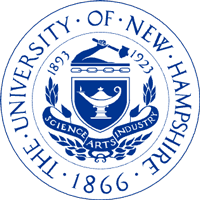
|
Introduction to Civil Discourse
University of New Hampshire
Instructor: Jennifer Borda
Term: Spring 2025
This course examines the practice and challenges of civil discourse in democratic contexts, exploring how dialogue, deliberation, and collaborative inquiry can foster meaningful engagement on contentious issues. Through case studies, discussion, and hands-on practice, students develop skills for facilitating productive conversations in politics, organizations, and communities.
|

|
Introduction to Political Theory
Southern Methodist University
Instructor: Avshalom Schwartz
Term: Fall 2024
This introductory course provides a thematic overview of key concepts, thinkers, and debates in political theory, including justice, equality, freedom, democracy, and major ideologies. Designed for students with little prior background, it aims to expand political vocabulary, encourage critical reflection, and offer a foundation for further study and informed civic engagement.
|
 |
Introduction to Political Theory
University of Vermont
Instructor: Minh Ly
Term: Spring 2024
This course introduces political theory by examining fundamental ethical questions about government, citizenship, rights, and democracy. Through the study of influential texts, students explore how values like freedom, equality, and patriotism shape civic responsibilities and guide democratic participation.
|
 |
Justice By Means of Democracy
Harvard University
Instructor: Danielle Allen
Term: Spring 2023
This course examines the relationship between ethical frameworks and policy-making, contrasting John Rawls’ Theory of Justice with an alternative approach emphasizing democracy and inclusive empowerment. Students explore how normative theories inform policies in areas such as housing, employment, education, and climate, while considering how theory translates into practice through contemporary policy examples.
|
 |
Keeping the Republic
University of Notre Dame
Instructor: David Campbell
Term: Fall 2024
This course examines the current state and future of democracy in the United States, exploring questions about its nature, history, stability, and the challenges posed by polarization and declining trust. Emphasizing active engagement, students learn about democratic principles by participating in democratic practices and reflecting on their role in sustaining the republic.
|
 |
Misinformation and Democracy: Past and Present
Stanford University
Instructor: Avshalom Schwartz
Term: Fall 2023
This course examines the relationship between misinformation and democracy, asking whether and how falsehoods threaten democratic life and what can be done about it. Through historical and contemporary readings–from Plato and Hobbes to modern debates about social media–students explore how thinkers across time have grappled with lying, conspiracy, censorship, and truth in politics.
|
 |
Political Dialogue
University of Virginia
Instructor: Rachel Wahl
Term: Spring 2024
This course explores the role of political dialogue in democracy, asking whether civil discourse can strengthen democratic life or reinforce inequality and oppression. Integrating theory and practice, students engage in structured dialogues across political differences and analyze their experiences through political theory, primary sources, and contemporary commentary.
|
 |
Political Modernity as the Conquest of Nature
Carleton University
Instructor: Waller Newell
Term: Winter 2022
This course traces the evolution of the modern political project as a “conquest of nature,” beginning with the classical debate between Plato, Aristotle, and the Sophists. Through thinkers from Machiavelli and Hobbes to Rousseau, Hegel, and Heidegger, students examine how ideas of nature, freedom, power, and technology have shaped modern political life and the human condition.
|
 |
Political Philosophy
Zephyr Institute Philosophy Camp
Instructor: Molly Oshatz
This summer seminar introduces students to foundational questions in political philosophy by returning to first principles about justice, the state, and the good society. Through close readings of Plato, Aristotle, Hobbes, Locke, Mill, and others, participants explore the moral and philosophical roots of political life–culminating in debates about liberty, equality, and free speech that continue to shape modern democratic thought.
|
 |
Political Thought in Modern Asia
Fordham University
Instructor: Dongxian Jiang
Term: Spring 2023
This course introduces students to non-Western political thought, focusing on how major Asian traditions–Confucianism, Hinduism, and Islam–have grappled with questions of modernity, governance, rights, and the good life. By engaging nineteenth- and twentieth-century thinkers from Japan, China, India, and the Islamic world, students will examine how these traditions have interacted with, adapted to, and challenged Western political ideas, illuminating diverse visions of justice, democracy, and moral order in a global context.
|
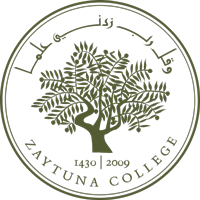
|
Principles of Democracy
Zaytuna College
Instructor: Fr. Francisco Nahoe
Term: Fall 2023
This course examines the development of Western democratic theory from ancient Greece to the present, tracing the reciprocal relationship between evolving democratic ideas and the institutions that embody them. Through readings from Thucydides to Tocqueville—and including a modern exploration of Islamic political thought—students will investigate how thinkers and movements have defined, defended, and critiqued democracy’s core ideals of liberty, equality, and justice, cultivating both historical understanding and critical engagement with democratic theory today.
|

|
Seminar in Politics
Zaytuna College
Instructor: Fr. Francisco Nahoe
Term: Spring 2023
This seminar introduces students to major works in the history of political philosophy through direct engagement with thinkers from Plato to Marx. By examining how these philosophers grappled with the political challenges of their time, students will explore enduring questions about justice, democracy, human flourishing, and the relationship between the individual and the state, while developing research and writing skills that culminate in a staged final paper modeled on the senior thesis.
|
 |
Varieties of Conservatism in America
Stanford University
Instructor: Peter Berkowitz
Term: Spring 2024
This seminar examines the development of American conservatism, from its roots in the modern tradition of freedom and its critique by Marx to its post–World War II emergence and contemporary debates over populism, nationalism, and the common good. Through close reading and discussion, students will explore the virtues, tensions, and institutional foundations of liberal democracy and assess the competing arguments within conservative thought.
|
 |
What is a Republic?
Harvard University
Instructor: Daniel Carpenter
Term: Spring 2025
This course explores the theory and history of republican (representative) government, tracing its evolution from classical and European examples to the United States and France, with a focus on the interaction of elections, offices, assemblies, and non-electoral forms of representation. Through interactive discussion and historical-philosophical analysis, students examine the strengths, limits, and ethical dimensions of republican institutions, including the role of virtue, citizen participation, and mechanisms that keep rulers accountable.
|
 |
Latin American Political Thought
Arizona State University
Instructor: Eduardo Schmidt Passos
Term: Fall 2025
This course offers a historical survey of major debates and thinkers in Latin American political thought, from colonial-era arguments about conquest and human nature to independence-era struggles over liberty and order, post-independence liberalism, race theory, and 20th-century movements such as Marxism and liberation theology. Through these traditions, students examine how Latin American intellectuals addressed foundational political questions shaped by their unique histories, identities, and relationships to the Western canon.
|
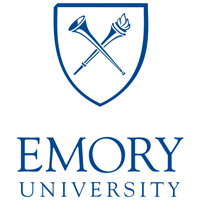 |
Foundations of American Democracy
Emory University
Instructor: J. Judd Owen
This course introduces students to the foundational ideas, debates, and documents that shaped the American constitutional system and continue to influence its development and challenges today. Through close reading and discussion of classic texts and primary sources, students build a shared core of knowledge to support further study of politics or law and to foster engaged, responsible citizenship.
|
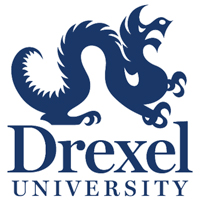 |
CIVC 101: Introduction to Civic Engagement
Drexel University
This course introduces students to the meaning and practice of civic engagement, emphasizing identity, community, and social systems as foundations for responsible, socially conscious citizenship. Through community-engaged learning, volunteerism, and structured reflection, students connect classroom concepts to real-world social issues and develop skills to create positive social change beyond the course.
|
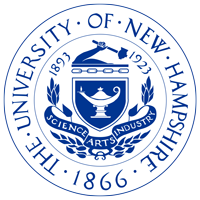 |
Democracies and Republics
University of New Hampshire
Instructor: R. Scott Smith
This course introduces students to Athenian democracy and the Roman Republic, the political theories that shaped them, and their lasting influence on later political thought, including the founding of the U.S. Constitution. Through debates on citizenship, power, and governance, students apply these ideas by collaboratively re-imagining a constitution in the modern context.
|































